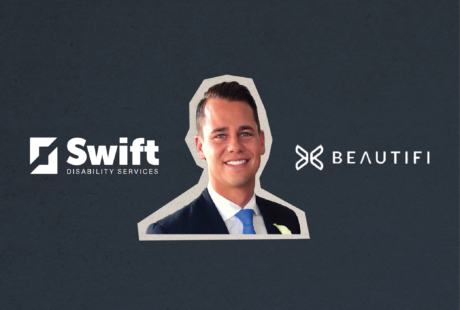In the world of finance and insurance, a major demographic shift is looming. Boomers and Gen Xers, long set in the ways of in-person banking and financial consultancy, are primed to comprise less of the profitable market than their younger counterparts, Millennials and Gen Zers. Indeed, as technology has grown in recent years to provide smart budgeting apps, banking apps, and investment apps, along with robust online tools to manage money, the youth market has become of prime importance for companies looking to grow their reach and fortify corporate practices and product offerings well into the future. Gone, generally speaking, are the days of waiting in lines at the bank, or even meeting your financial manager in person; here to stay are retina-scan enabled stock trades executed from the comfort of one’s own couch, commute, or computer.
What does this mean for insurance and finance firms moving forward? Fintech is the name of the game and new executive hires must be able to capitalize on this unprecedented shift.
A New Focus For Fintech and Insurtech
Fintech and insurtech are focussing on bringing simple solutions to the difficult problems of Millennial finance to date. At its base, fintech and insurtech seek to circumvent the unwieldy nature of big banks in favour of nimble digital services that either offer or obsolesce banking products. In 2015, global investment in fintech grew 75% to a value of $22.3 billion according to Accenture, with the biggest sector disruption occurring within consumer banking.1 More than ever, financial and insurance-related firms are looking toward a paradigm-shifting way to deliver their services—this is precisely where new executive hires should excel.
When Hiring For Fintech, Don’t Look to Banks
“The people in these new fintech startups are often not from banking, they are from outside banking, and they want to make it better for the consumer,” says Glen Frost, founder of Fintech Summit and Fintech Awards.2 Indeed, new financial and insurance products intended to capture younger audiences may need a Silicon Valley edge. As contrary or counterintuitive as it may seem, fintech and insurtech executives should be able to shuttle the company toward excellent consumer experience over all else, and this expertise may come at the cost of experience within banking. “This is likely because consumers are looking for new ways to transfer their money on-the-go and with as little friction as possible,” reports OFX.2
This shift highlights a central fact which sets Millennials and Gen Zers apart from the generations which preceded them: young peoples’ experiences with finance, insurance, and capital in general is vastly different from that of their parents. There are a number of factors which underscore this reality but, primarily, we can consider the threat of “stagflation” that is marring North America.3 For many young people, it is impossible to find a job which pays enough to purchase a home: output and wages are growing more slowly than the cost of living. This hot button topic illustrates how, for young people today, financial goals and the means by which they are attained are vastly different—and in many cases, much more difficult—than those of their parents. Different problems and different values require new and innovative solutions in finance and insurance. Creative thinking with a consumer-centric approach is key to the successful development of such products.
The Potential of Fintech and Insurtech is Endless, With the Right Leadership
Developments in fintech and insurtech have brought products and customer support to millions of new users via digital deliveries on iOS, Android, and other major market players. This sort of reach and this sort of product development is incredibly powerful and will continue to represent immense opportunity for growth.
Primarily, fintech allows for the decentralization of the banking and insurance apparatuses. Though this presents a challenge for regulators, it also represents an unprecedented ability to establish a collaborative ecosystem predicated upon the consumer experience and successful consumer banking.2 This is all part of the sharing economy—the same economy which has brought us Uber and Airbnb—which PwC predicts is set to overhaul fintech and banking by way of decentralization. “In this case, the sharing economy refers to decentralised asset ownership and using information technology to find efficient matches between providers and users of capital, rather than automatically turning to a bank as an intermediary.”4 Big banks, given the common retention of brick and mortar locations and a reliance on robust work forces, are generally beholden to an inflexibility which prevents them from best serving the consumer in terms of the market today: fast evolving, globalized, and necessarily accessible from anywhere at anytime.
New Execs Need to be Versed in Fintech and Insurtech Regulation
With decentralization comes the challenge of regulation. When hiring new executives keen to embrace the opportunities of fintech and insurtech, corporations would do well to ensure they’ve got a strong regulatory candidate on their shortlist. As regulators turn to big data to pre-emptively wrangle the reach of fintech and insurtech products, executives should have a handle on navigating that rapidly shifting and tenuous regulatory landscape.4 Anticipating places where regulators will do too much or too little, consequently mangling company plans, will prove crucial in the coming years.
“It is shortsighted to focus solely on compliance with current regulations. Rather, firms should develop a better understanding of where their data and associated controls live,” reports PwC.4
Only time will tell what shapes fintech and insurtech will come to inhabit in the coming years, but one thing is certain today: either get ahead or get left behind. Now is the time for executive hires to change the landscape before someone else does it first.




